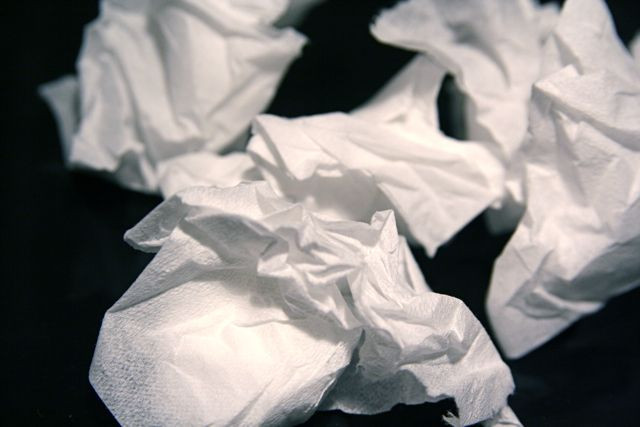Sneezing 12,000 Times A Day Is Normal For This Texas Girl: But Can Sneezing Actually Kill You?

Sneezing is disruptive, sometimes messy, and generally annoying. People usually sneeze the most when they have a cold or allergies, but even so, it’s a few dozen times a day at the most and it stops when the person recovers.
For 12-year-old Katelyn Thornley, the sneezing never ends.
The seventh grade student used to go to school and play clarinet in the band, but that was before she started sneezing up to 12,000 times a day. That’s about 20 sneezes every minute.
“I just started in little spurts,” Katelyn told Fox 26. “I thought it was like, ‘I’m allergic to something or didn’t wash the (clarinet) mouthpiece the right way.”
Katelyn's condition causes her abdomen to be in constant pain, and her legs to weaken. After the sneezing went on for some time, the family began to consult with physicians. They’ve already talked to six, who have ruled out viruses and allergies as possible causes of the sneezing. Experts believe it may be a stress-related reaction.
Katelyn's father has witnessed things that may support this theory.
“Anything you talk to her about that irritates her — you can see it spike and continuous sneezing,” he said. “It’s easy to trigger.”
Listening to The Beatles has helped Katelyn relax, and the only time she doesn’t sneeze is when she falls asleep after taking Benadryl.
“Sometimes I wish I could leave my body for a little while so I could watch myself sleep and be at peace because even in my dreams, I sneeze,” she said.
The girl is trying to remain positive and keep her sense of humor. She said she hopes that one day, she’ll be cured and be able to laugh about her ordeal saying, “I was on TV once for sneezing.”
Can Sneezing Kill?
Katelyn’s condition is certainly disturbing, but is it really dangerous? Can sneezes hurt you?
Not really, according to most experts. We sneeze to expel irritants from the nose, including foreign particles that could possibly be a threat to our system. While sneezing a lot is certainly a pain, there’s no evidence sneezing can harm an already healthy person. There have been freak instances when sneezing could cause enough of a jolt to hurt a person, but only when another injury had been sustained. One case, and perhaps the most famous, was that of Martin Luther King Jr., who could have died if he jolted his body after being stabbed in 1958.
While an actual sneeze may not be able to hurt most people, it seems holding one in can be a tad more dangerous.
“I wouldn’t recommend suppressing a sneeze by any method, whether by pinching one’s nose or consciously sneezing into a closed throat,” said Alan Wild, a head and neck surgeon and assistant professor of otolaryngology at Saint Louis University School of Medicine to Live Science.
Stopping a sneeze as it's trying to escape probably won’t do anything, but Wild said it could lead to a few problematic situations.
“The injuries that might occur are flukes or are related to some underlying anatomical oddity,” he said. “The risk of injury is low, but you might just be the unlucky one.”
Stifling a sneeze has the potential to cause injury to one’s diaphragm, or weaken and pop blood vessels. If these blood vessels are in the white of the eye, the eye white could appear bruised. A weakened blood vessel in the brain, however, could rupture due to a momentary elevation of blood pressure. Halting a sneeze could also force air up the Eustachian tubes in the ears, which has the potential to cause injury to the ear drum or inner ear, resulting in hearing loss.
Though doctors are pretty sure sneezing is generally safe, and that these possibilities are extremely rare, sneezing is still rather poorly understood as a whole.
“Many people when exposed to bright sunlight, while some people sneeze during sex, after administration of certain intravenous anesthetics, eating too much, or with certain neurological disease, such as epilepsy,” Wild said. “This type of sneezing is poorly understood.”
Published by Medicaldaily.com



























